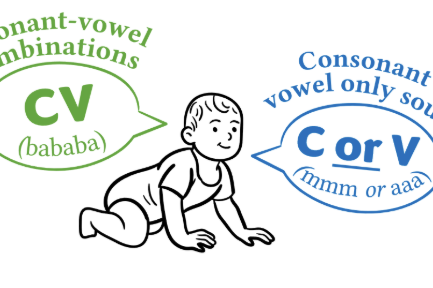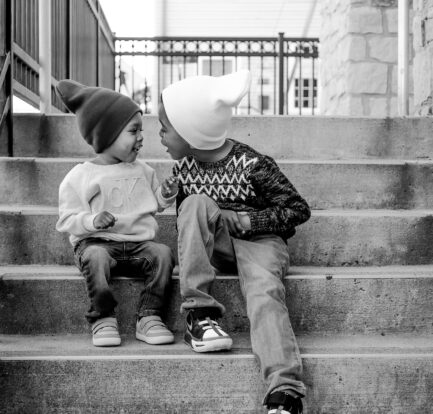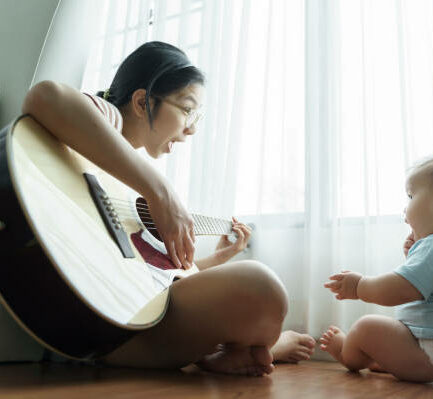Have you ever had a conversation in front of a newborn? Afterwards, did you ever wonder whether they understood anything you said? Did they interpret your speech as meaningful or as nonsensical sounds? It turns out that infants begin to process and make inferences about speech from birth, and they even come with some knowledge […]
~Automagically~ Measuring Baby Speech Development
If you’re a parent, you’ve probably noticed how your baby’s sounds change over time. At first, they make simple consonant- or vowel-only sounds like “mmmm” and “aaa”. But then something exciting happens: they start combining consonants and vowels in sounds like “bababa”. These combinations are a big deal for language development. They are a sign […]
Are Younger Siblings “Worse” at Learning Language?
For parents, providing your children with equal opportunities is a common goal. But when it comes to language development, is it really possible to provide the same input to each child? And, more importantly, does differing input cause differing language abilities between siblings? Blake proposes that the more children there are in a family, the […]
How Do We Combine Words to Express Complex Ideas? Linguistic Compositionality
Language is compositional: we systematically combine smaller language units—words into phrases, and phrases into sentences—to form more complex ideas. The meaning of each sentence depends on the meanings of its words and how we put them together. Consider the example, “John hugs Mary.” Each word has a specific meaning: “John” refers to one person, “Mary” […]
What is Baby Sign and do I need to be using it with my baby?
If you pay attention to almost anyone speak, you will likely notice that most people use gestures, body language, and facial expressions in addition to words in communication. Linguistic communication is not limited solely to vocal communication! So what does this mean for babies? Beyond serving as a simple means of expression, gesturing can be […]
Focus on the positive: kids don’t really learn about what *isn’t possible* when learning language
Have you ever tried to “correct” a toddler’s grammar? It probably went in one ear and out the other. There’s a very famous example from a linguistics researcher: Child: Want other one spoon, Daddy. Father: You mean, you want the other spoon. Child: Yes, I want other one spoon, please Daddy. Father: Can you say […]
iPad babies: should we worry about technology’s impact on language learning?
Currently, it is estimated that over 65% of the world (or 5 billion people) have access to the internet (Shewale, 2024). In such a connected world, it may seem overwhelming for parents to figure out how they want their child to spend their time, and how to support their learning. With new apps, videos, and […]
We can learn to sing, but can we sing to learn?
Why are the ABCs sung? Sure, it makes the alphabet more fun for kids to learn. But does it also make it easier for them to learn? Short answer: yes! It’s the reason why many languages have songs for their own alphabets–and the reason why I can still rattle off the capitals of most of […]
What Does It Mean to Be Fluent in a Language?
I’ve been learning Spanish since I was eight years old–I can read, write, and speak it very well, but I have never once said that I am “fluent”. I don’t even know what that really means! The word fluency comes from the Latin word fluentem, which means “to flow”. The dictionary definition of fluency states […]
Animals Don’t Have Language (Sorry! But They Do Communicate!)
As a pet owner, I often find myself wondering if my dogs are actually “saying” what I have interpreted from their barks, whines, and sighs. When they bark at the door to go outside or at the window when a car passes by, are they using language that I just can’t understand? While dogs definitely […]




